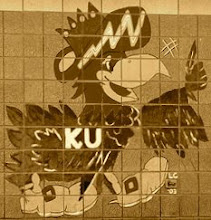II Conferencia Internacional en Estudios Caribeños
2nd. International Conference on Caribbean Studies (ICCS)
Deuxième Conférence Internationale des Études sur les Caraïbes
“El Caribe múltiple y el bicentenario de las independencias hispanoamericanas continentales”
Universidad de Cartagena.
Cartagena de Indias, Colombia.
Marzo 15 – 19, 2010.
Comunicación No. 2:
Conferencistas invitados:
Raphaël Confiant
(Martinica)
Miembro del movimiento criollista, del Grupo de Estudios e Investigación sobre el Espacio Creolófono (GEREC) y profesor en Université des Antilles Guyane. Autor de Eloge de la créolité (1989), con Jean Bernabé y Patrick Chamoiseau; Lettres créoles: tracées antillaises et continentales de la littérature… (1991), también con Chamoiseau, Dictionnaire créole martiniquais-français (2007), entre otros libros. Algunas de sus novelas más recientes son: Adèle et la pacotilleuse (2005), Case à Chine (2007) y Hôtel du bon plaisir (2009). Es uno de los intelectuales caribeños más influyentes de nuestros días.
Enrique Saínz
(Cuba)
Miembro de Número de la Academia Cubana de la Lengua. Autor entre otros de los libros: Silvestre de Balboa y la literatura cubana (1982), La literatura cubana de 1700 a 1790 (1983), La obra poética de Cintio Vitier (1998), La poesía de Virgilio Piñera: ensayo de aproximación (2001), Ensayos en el tiempo (2008) y de Ensayos inconclusos (2009). Colaboró en la elaboración del Diccionario de la literatura cubana (1980-1984) y la Historia de la literatura cubana (2002-2009). Uno de los más prolíficos y connotados ensayistas residentes en la Isla.
Alfonso Múnera Cavadía
(Colombia)
Fundador de la Facultad de Ciencias Humanas, director del Instituto Internacional de Estudios del Caribe y Vicerrector de Investigaciones de la Universidad de Cartagena. Ha dirigido durante 16 años el Seminario Internacional de Estudios del Caribe. Autor de El fracaso de la nación: región, clase y raza en el Caribe Colombiano: 1717 -1810 (1998) y Fronteras imaginadas: La construcción de las razas y de la geografía en el siglo XIX colombiano (2005). Su obra historiográfica ha contribuido a transformar la visión del Caribe como parte de la nación colombiana.
Entidades patrocinadoras:
Fundación Universitaria del Área Andina
Oficina de Relaciones Internacionales
www.areandina.edu.co
Pontificia Universidad Javeriana
Departamento de Literatura
www.javeriana.edu.co
Universidad de Cartagena
Instituto Internacional de Estudios del Caribe
www.unicartagena.edu.co
University of Texas Pan American
Dept. of Modern Languages & Literatures
www.utpa.edu/dept/modlang
République Française
Ambassade de France à Bogota
www.ambafrance-co.org/
La II Conferencia Internacional en Estudios Caribeños tendrá lugar entre el 15 y el 19 de marzo de 2010 en Cartagena de Indias, en la región del Caribe colombiano. El tema central enfatiza pero no limita temáticamente el carácter interdisciplinario de la conferencia. Se sugieren adicionalmente las siguientes temáticas:
Producción teórico-crítica desde el Caribe.
Integración regional caribeña y con América Latina.
Estudios sobre arte, incluyendo música y pintura.
Estudios culturales y literarios: una perspectiva transnacional caribeña.
Estudios transatlánticos: Caribe/Europa/África.
Dinámicas articuladoras entre el Caribe, el Pacífico y Brasil.
Dinámicas socioculturales andino/caribeñas en Colombia.
Raza, género y subalternidad epistemológica.
Educación superior y pedagogías caribeñas ante la globalización.
Diásporas caribeñas.
Sostenibilidad ambiental y cultural del mar Caribe.
Se aceptará sólo una propuesta de ponencia o panel por cada autor, ya sea en español, inglés o francés. Los paneles estarán compuestos de hasta 4 ponencias. Ninguna presentación podrá sobrepasar los veinte minutos, este límite será rigurosamente cumplido por los presentadores y los moderadores de secciones. Por favor enviar un resumen de máximo 200 palabras en un archivo adjunto (Word) a: hrromero@panam.edu (en inglés o francés) y a figueroa@javeriana.edu.co (en español) hasta el 15 de noviembre de 2009.
Para actualizaciones e información sobre hoteles, aeropuertos e inscripciones consultar las páginas del evento:
http://www.areandina.edu.co/portal/medios/documentos/pdf/convocatoriacaribe.pdf http://www.utpa.edu/Dept/modlang/Conference/iccs.htm
________________________________________
Para más información, por favor contactar a:
Kevin Sedeño Guillén
Fundación Universitaria del Área Andina
Bogotá, D. C., Calle 71 No. 13-21.
Telf.: (57-1) 346 6600, ext. 161. Fax. (57-1) 313 1076.
E-mail: kesedeno@areandina.edu.co

